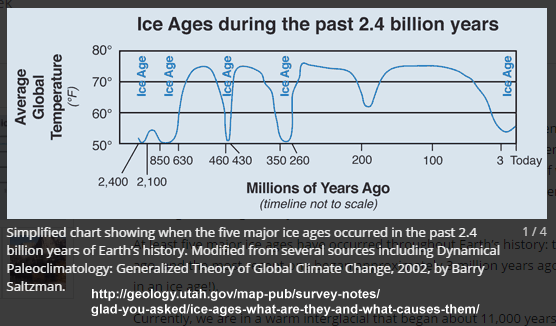Al Gore Fusing Christianity to Environmentalism
One of the defining features of religion is that your beliefs are not troubled by facts, because they have nothing to do with facts.Tweet
Michael Crichton
Al Gore's book Earth in the Balance published in 1992 serves as a literal bible of how he and millions of others have re-mapped environmentalism into a religion with elements of New Age mysticism into a Christian framework - devoid of Salvation by Christ. Other integrate Marxism into the mix like Pope Francis does. In many places in his book he attacks science and technology on spiritual and morel grounds.
Yet the law is clear this being used as government policy is a violates separation of religion and state. These people are religious fanatics and are more dangerous than even fundamentalist' Islam. It's time to remove religion from environmentalism or remove environmentalism from public policy.
Here is Preacher Gore in his own words.
The way we experience the world is governed by a kind of inner ecology that relates perception, thinking and forces outside ourselves... But this ecology now threatens to fall badly out of balance because the cumulative impact of the changes brought by the scientific and technological revolution are potentially devastating to our sense of who we are and what our purpose in life might be. Indeed, it may now be necessary to foster a new "environmentalism of the spirit."
How do we, for example, conserve hope and minimize the quantity of corrosive fear we spill into our lives? How do we recycle the sense of wonder we felt as children, when the world was new? How do we use the power of technology without adapting to it so completely that we ourselves behave like machines, lost in the levers and cogs, lonesome for the love of life, hungry for the thrill of directly experiencing the vivid intensity of the ever-changing moment?
No wonder we have become disconnected from the natural world — indeed, it's remarkable we feel any connection to ourselves. And no wonder we have become resigned to the idea of a world without a future. The engines of distraction are gradually destroying the inner ecology of the human experience. Essential to that ecology is the balance between respect for the past and faith in the future, between a belief in the individual and a commitment to the community, between our love for the world and our fear of losing it — the balance, in other words, on which an environmentalism of the spirit depends.
To some, the global environmental crisis is primarily a crisis of values. In this view, the basic cause of the problem is that we as a civilization base our decisions about how to relate to the environment on premises that are fundamentally unethical. And since religion has traditionally been the most powerful source of ethical guidance for our civilization, the search for villains has led to the doorstep of the major religious systems.
Here in the West, some have charged — inaccurately, I believe — that the Judeo-Christian tradition chartered the relentless march of civilization to dominate nature, beginning with the creation story of Genesis, in which humankind is granted "dominion" over the earth. In its basic form, the charge is that our tradition assigns divine purpose to our exercise of virtually complete power to work our will over nature...
In the Judeo-Christian tradition, the biblical concept of dominion is quite different from the concept of domination, and the difference is crucial. Specifically, followers of this tradition are charged with the duty of stewardship, because the same biblical passage that grants them "dominion" also requires them to "care for" the earth even as they "work" it. The requirement of Stewardship and its grant of dominion are not in conflict; in recognizing the sacredness of creation, believers are called upon to remember that even as they "till" the earth they must also "keep" it.
Ref. Earth in the Balance P 242-3
- Common Sense Environmentalism (Archive)
- Spiritual Ecology Versus Science
- Dr. James Hansen Paid Environmentalist
- Green Religion Won't Save Appalachia
- How Ecological Homeostasis and Hysteresis Regulate Climate
- Michael Crichton Speech - Environmentalism as Religion
- Dissecting Al Gore's Book Earth in the Balance
- Postmodernism Attacks Reason, Science, and Culture
- Ages of Gaia Writer James Lovelock Sounds an Alarm
- Writer James Lovelock Backtracks on Revenge of Gaia
- Hypsithermal Warming Spreads Civilization
- Shockingly Rapid Climatic Shifts are Real
- Bikini Atoll Recovery From Nuclear Blasts
- NASA says Earth Going Greener
- Climate change changes history:
- Fall of the Late Roman Empire
- End of the Vikings in Greenland
- Lost Colony of Roanoke Island
- Whale Fossils Unlock the History of the North
[ Challenge to Atheists 3 ] [ Challenge to Atheists 4 ]
[ Challenge to Atheists 5 ]

